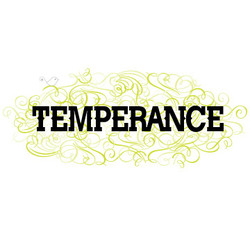
The word "meekness" comes from the Greek word prautes, which depicts the attitude or demeanor of a person who is forbearing, patient, and slow to respond in anger; one who remains in control of himself in the face of insults or injuries. In the Greek language, the word prautes conveys the idea of a high & noble ideal to be aspired to in one's life. Although an injurious situation may normally produce a rash or angry outburst, a meek person is controlled by kindness, gentleness, mildness, or even friendliness.
The word "meekness" pictures a strong-willed person who has learned to submit his will to a higher authority. He isn't weak, he is controlled. He may in fact possess a strong will and a powerful character; he may be a person who has his own opinion. But this person has learned the secret of submitting to those over him. Thus, he is one who knows how to bring his will under control.
This means when the Spirit is producing meekness in your life, you are controlled even in difficult circumstances. Rather than fly into a rage and throw a temper tantrum, you are able to remain silent and keep your emotions and temper under control. If you find yourself in a situation that you fiercely believe is wrong, you are still able to stay silent until the appropriate moment to speak or until you have been asked for your opinion. You know how to control yourself and your emotions.
In addition to these meanings, the word "meekness" was also used in a medical sense to denote soothing medication to calm the angry mind. A meek person doesn't project the countenance of one who is offended, upset, angry, or reactive to insults or injuries. Instead, he is so gentle and mild in his response that he becomes soothing medicine for the angry or upset soul, or for troublesome or upsetting situations.
When meekness is being produced in you by the Holy Spirit, it will make you careful and controlled. Your very presence will become God's soothing medication for angry, upset people, and you will impart peace to situations that hitherto were unsettling and unstable.
The word "temperance" comes from the Greek words en and kratos. The word en means in, and the word kratos is the Greek word for power. When compounded into one word, these two Greek words form the word enkrateia, which literally means in control and denotes power over one's self; hence, it is often translated as the word "self-control." It suggests the control or restraint of one's passions, appetites, and desires.
Just as a meek person can control his attitude, a person with temperance has power over his appetites, physical urges, passions, and desires. Because the Holy Spirit has produced temperance in his life, he is able to say not to overeating, no to overindulging in fleshly activities, no to any excesses in the physical realm. A person with temperance maintains a life of moderation and control. The word enkrateia could be translated as restraint, moderation, discipline, balance, temperance, or self-control.
When a person is controlled by the Holy Spirit, God's Spirit produces in him a discipline over the physical realm that helps him sustain his physical condition, stay in good health, remain free from sin, and live a life that is moderate and balanced.
Now that you better understand the meanings of the word "meekness" and "temperance," consider how well you're doing in allowing the Holy Spirit to produce these two physical fruits in your life. Do you demonstrate that you can control both your temper and your physical appetites and urges?
Take a good look at yourself today to see if meekness and temperance are being produced in you.
This post was adapted from the writings of Rick Renner as found in his book: Sparkling Gems from the Greek
 RSS Feed
RSS Feed